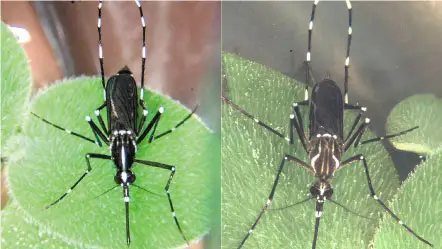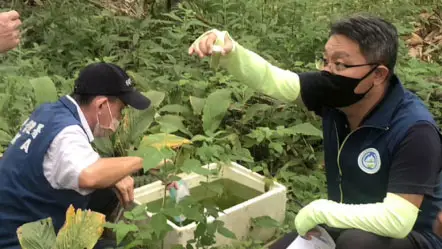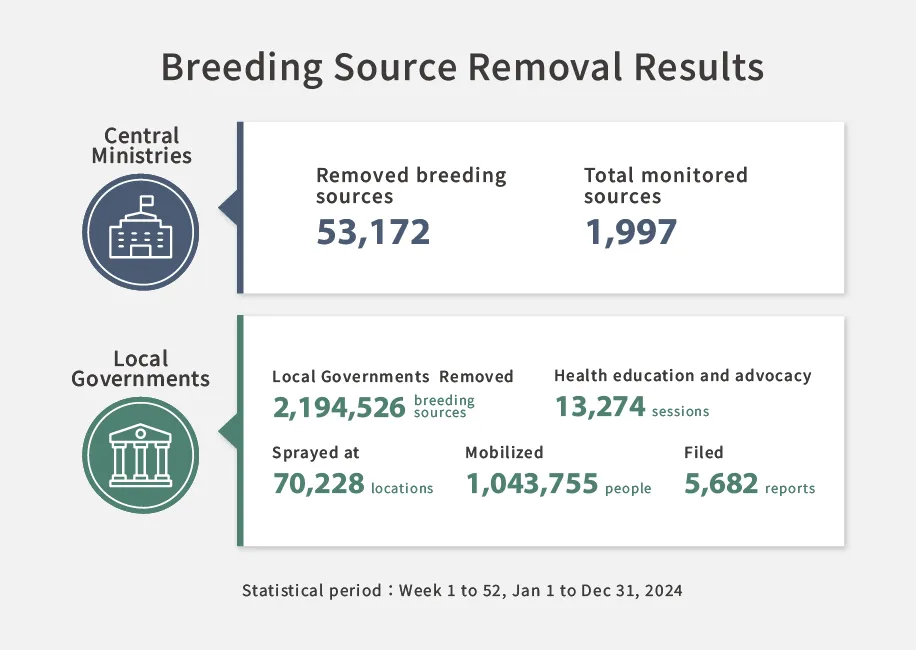 Dengue Fever Control
Dengue Fever Control

Dengue fever, a tropical infectious disease also known as "Tengu fever" or "Breakbone fever," is primarily transmitted by the Aedes aegypti and Aedes albopictus mosquitoes. Taiwan has experienced several large-scale outbreaks in the past, but through government and public efforts, it is no longer an area with widespread epidemics. In recent years, however, cases have reappeared due to imported cases from abroad.
Located in a subtropical region with high summer temperatures, especially in southern areas, Taiwan is well-suited for mosquito growth, resulting in dengue cases each year. The government has established a coordination mechanism to actively prevent and control dengue fever. Under the "Communicable Disease Control Act," dengue fever is classified as a Category II notifiable disease, with the Ministry of Health and Welfare as the competent authority for epidemic prevention. Prevention and control efforts include surveillance, vector mosquito investigation, medical treatment, testing, public awareness, pesticide spraying, and removal of breeding sources. The Environmental Management Administration collaborates with the Ministry of Health and Welfare to clear outdoor mosquito breeding sites and conduct emergency spraying and disinfection.
Dengue fever prevention requires joint efforts from the public and the government. The government should promote the "Dengue Fever Prevention Plan," urging the public to proactively clean up areas around their homes. Additionally, pesticide spraying training and regional inspections should be conducted. Dengue fever is to be prevented by eliminating breeding sources. Key points of the work include:
- Members of the public should proactively eliminate potential mosquito breeding sites around their homes, while the government should reinforce supervision and penalties.
- Implement a national dengue fever prevention plan, using media to raise public awareness about dengue fever prevention, educate, and encourage the public to conduct self-inspection and remove breeding sites.
- Conduct pesticide spraying training for frontline personnel.
- Provide financial support to local environmental agencies for the purchase of pesticide spraying equipment and chemicals and the monitoring and elimination of vector mosquitoes.
- Establish a support list to coordinate manpower and spraying equipment from other agencies.
- Strengthen patrols in dengue fever-affected areas, especially in locations likely to breed vector mosquitoes.


Dengue fever prevention requires long-term, continuous effort, with cooperation and support from the government, the public, and all relevant agencies. Through ongoing monitoring, breeding site elimination, education, and preventative measures, we can effectively control the spread of dengue fever, protect public health, and create a safe and healthy environment.

- Data Source: Division of Environmental Sanitation
- Publish Date: 2024-08-27
- Update Date: 2025-06-09

 Related Topics
Related Topics






